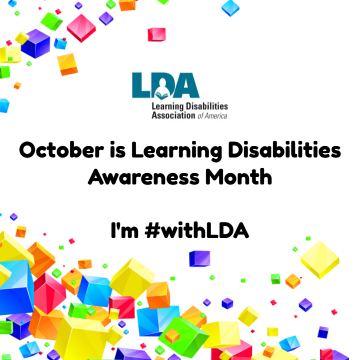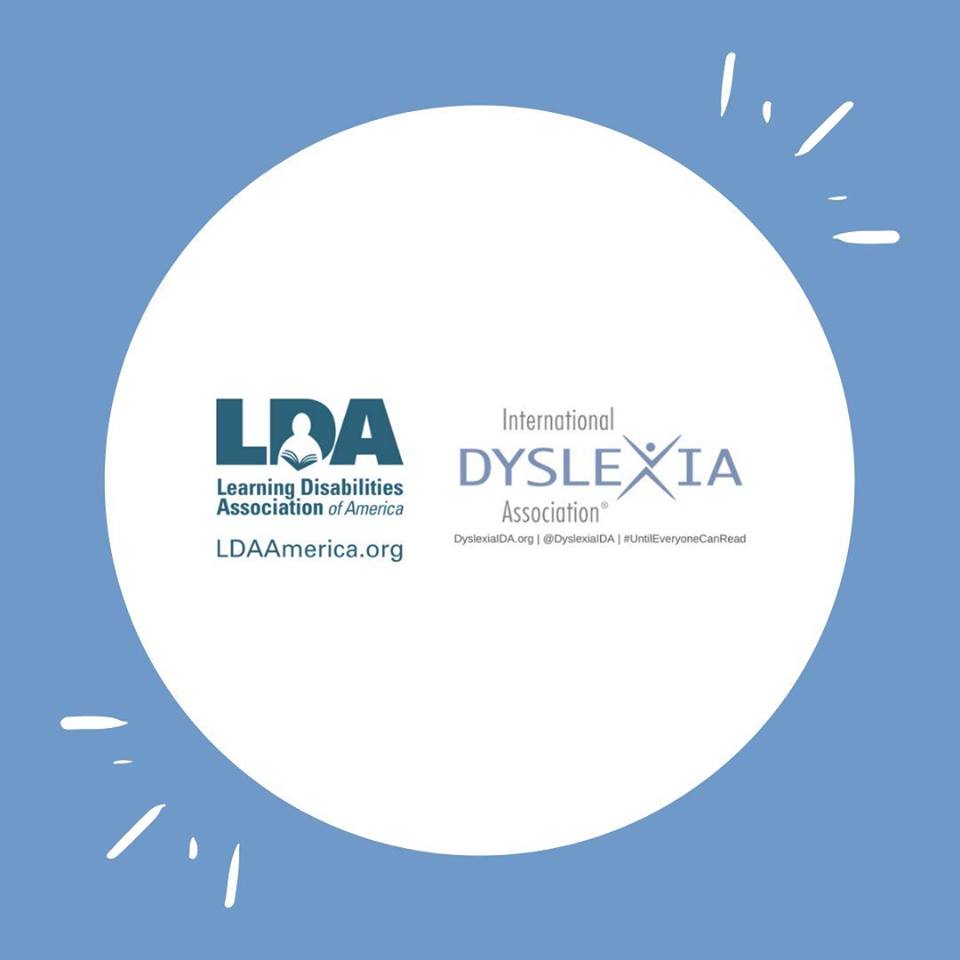MEDIA CONTACT:
Tracy Gregoire, Healthy Children Project Coordinator, Learning Disabilities Association of America, 207.504.2556, tracy@ldaamerica.org
Groups sue EPA for refusing to ban brain-damaging pesticide
Chlorpyrifos is linked to learning and intellectual disabilities in children
Washington, DC (August 7, 2019) –
Today, health and labor organizations sued the Environmental Protection Agency (EPA) for refusing to ban a widely used agricultural pesticide linked to damaging children’s brains and farmworker poisonings.
“EPA has repeatedly found chlorpyrifos unsafe, especially to children, yet time and time again it refuses to protect kids,” said Patti Goldman, the Earthjustice managing attorney handling the case. “But Earthjustice and our clients won’t stand for this. The science and the law call for a chlorpyrifos ban. We are hopeful the courts will do the same for the sake of children and farmworkers.”
“A chlorpyrifos ban is long overdue given the overwhelming evidence that says this pesticide harms brain development in children,” said Tracy Gregoire with the Learning Disabilities Association of America. “Chlorpyrifos is acutely toxic and associated with neuro-developmental harm in children. Prenatal exposures to chlorpyrifos are associated with lower birth weight, reduced IQ, loss of working memory, attention disorders, and delayed motor development. Chlorpyrifos can cause learning disabilities, attention disorders, and even autism,” Gregoire continued. “Every day we go without a ban, children are eating, drinking, and breathing a pesticide linked to intellectual and learning disabilities, attention issues, and autism. Children are especially susceptible to the toxic effects of chlorpyrifos. They have greater exposure because they put often put their hands in their mouths, and relative to adults, they eat more fruits and vegetables, and drink more water and juice for their weight.”
A growing body of evidence shows that prenatal exposure to very low levels of chlorpyrifos harms babies permanently, meaning the effects are not reversible.
Advocates and seven states have been battling the current administration in court to get a chlorpyrifos ban. Moreover, some states are not waiting for the EPA and have filed bills of their own to ban this harmful pesticide. Legislators in New York just recently passed a ban bill that awaits Governor Andrew Cuomo’s signature, spurring the support of over 80 New York State coalition members that banded together to urge Gov. Cuomo to sign ban into law. Hawaii passed a bill to ban chlorpyrifos in 2018 and California, the largest agricultural state in the nation, started a process to ban the pesticide. The European Union is also considering a banfor 2020.
In response to a court deadline, last month EPA said chlorpyrifos can still be used on fruits and vegetables, even though studies show that exposures to chlorpyrifos in infants and children are associated with reduced IQ, attention disorders, and autism. In its decision, EPA claims it can avoid taking action on chlorpyrifos until 2022, when it is supposed to finish a massive pesticide review. In the meantime, countless numbers of children are being exposed to a nerve agent pesticide EPA scientists deemed unsafe in 2014 and 2016.
Chlorpyrifos is an organophosphate (OP), a class of chemicals that includes sarin nerve gas. First developed by the Nazis for chemical warfare, OPs were later repurposed for agricultural uses. Chlorpyrifos and other OP pesticides are used on strawberries, apples, citrus, broccoli, corn, and more. In fact, chlorpyrifos is one of the most common insecticides in the United States. Residues can be found not just in food, but also in drinking water. Farmworkers and rural families are most exposed, but consumers across the country are at risk, too, given chlorpyrifos widespread use.
Chlorpyrifos and the other OP pesticides were banned from almost all home use nearly two decades ago. EPA proposed banning chlorpyrifos from food crops in 2015. But shortly after the new administration took office, the EPA in 2017 refused to finalize the proposed ban, falsely claiming the science is “unresolved” despite decades of research and suggesting the agency would study the issue until 2022. That decision came after Dow Chemical donated $1 million to the President’s inaugural committee. The company, now known as Corteva Agriscience, sells chlorpyrifos under the trade name Lorsban.
“We have waited long enough”, said Gregoire. “Exposure to chlorpyrifos and it’s resulting harm to children’s brains is preventable. It is time to ban this highly neurotoxic pesticide.”
Quotes from our partners:
“The scientific evidence has been clear for years. Chlorpyrifos is toxic to farmworkers and linked to irreversible neurodevelopmental harms in children,” said Dr. Elena Rios, president of the National Hispanic Medical Association. “EPA might want to dismiss the science and the law to protect corporate profit, but we are confident the courts won’t stand for this.”
“Having chlorpyrifos in our fields means that women and men who harvest our food are in harm’s way every day,” said Erik Nicholson, United Farm Workers of America national vice-president. “We will fight to right this wrong in the court of law and the court of public opinion until a ban is in place.”
“Studies show chlorpyrifos is an awful threat to the health of children, particularly farmworker children and those who live in rural areas,“ said Jeannie Economos from the Farmworker Association of Florida. “If the current administration refuses to stand up for children’s health, then the only recourse is to force them through the courts.”
“A nerve agent pesticide that poisons workers and damages children’s developing brain has no place near our fruits and vegetables,” said Ramon Ramirez, president of PCUN. “We look forward to seeing the courts do what EPA refuses to do, protect workers and children with a chlorpyrifos ban.”
“It’s absurd that we have to ask the court to force EPA to do its job,” said Kristin Schafer, Pesticide Action Network executive director, one of the plaintiffs in the original 2007 case. “Scientists have known for years that chlorpyrifos puts the health of farmworkers and children in danger. Instead of acting on this evidence, EPA has chosen to ignore it — putting Dow Chemical’s profits before public health.”
“EPA’s backtracking has put the health of children and farmworkers at risk by purposely overlooking the harms of a terrible pesticide,” said Anne Katten, Pesticide and Work Safety Project director at the CRLA Foundation. “We are hopeful the courts will soon intervene and make a chlorpyrifos ban a reality. Our fields must be made safe for farmworkers, and our fruits and vegetables must be safe for our children.”
“We will not stand by while the current administration fights to keep this poison on the food we feed our kids,” said Miriam Rotkin-Ellman, senior scientist at NRDC. “EPA knows this stuff is toxic—its own scientists have been sounding the alarm for years now—but this administration is shameless in its push to keep it on the market. We are urging the court to side with children over a powerful chemical industry with friends in high places. Chlorpyrifos does not belong on our food or in our fields.”
To speak with community leaders and advocates involved in the case, please contact:
Tracy Gregoire, Learning Disabilities Association of America, 207-504-2556
Erin Fitzgerald, Earthjustice, 415-283-2323
Ahna Kruzic, Pesticide Action Network, 510-927-5379
Anne Katten, California Rural Legal Assistance Foundation, 916-446-7904 x110
Kate Kiely, Natural Resources Defense Council, 212-727-4592
Ben Melano, National Hispanic Medical Association, 202-628-5895
Erik Nicholson, United Farm Workers, 206-255-5774
Jeannie Economos, Farmworker Association of Florida, 407-694-8641
Andrea Arenas, Labor Council for Latin American Advancement, 202-508-6989
Ramon Ramirez, Pineros y Campesinos Unidos del Noroeste, 503-989-0073
Jessica Loya, GreenLatinos, 323-947-1802
Earthjustice filed the lawsuit on behalf of the Pesticide Action Network North America, Natural Resources Defense Council, United Farm Workers, Farmworker Association of Florida, Farmworker Justice, GreenLatinos, Labor Council for Latin American Advancement, National Hispanic Medical Association, Pineros y Campesinos Unidos, Learning Disabilities Association of America, and California Rural Legal Assistance Foundation.
###
About the Learning Disabilities Association of America:
The Learning Disabilities Association of America (LDA) is a national non-profit organization working to create opportunities for success for all individuals affected by learning disabilities, and to reduce the incidence of learning disabilities in future generations. LDA and its state and local affiliates provide service, information and advocacy for individuals with learning disabilities, parents, educators, and health professionals. ldaamerica.org @LDAAmerica @HealthyChildrenProject











 LDA’s own President, Beth McGaw was recently featured in the
LDA’s own President, Beth McGaw was recently featured in the 
